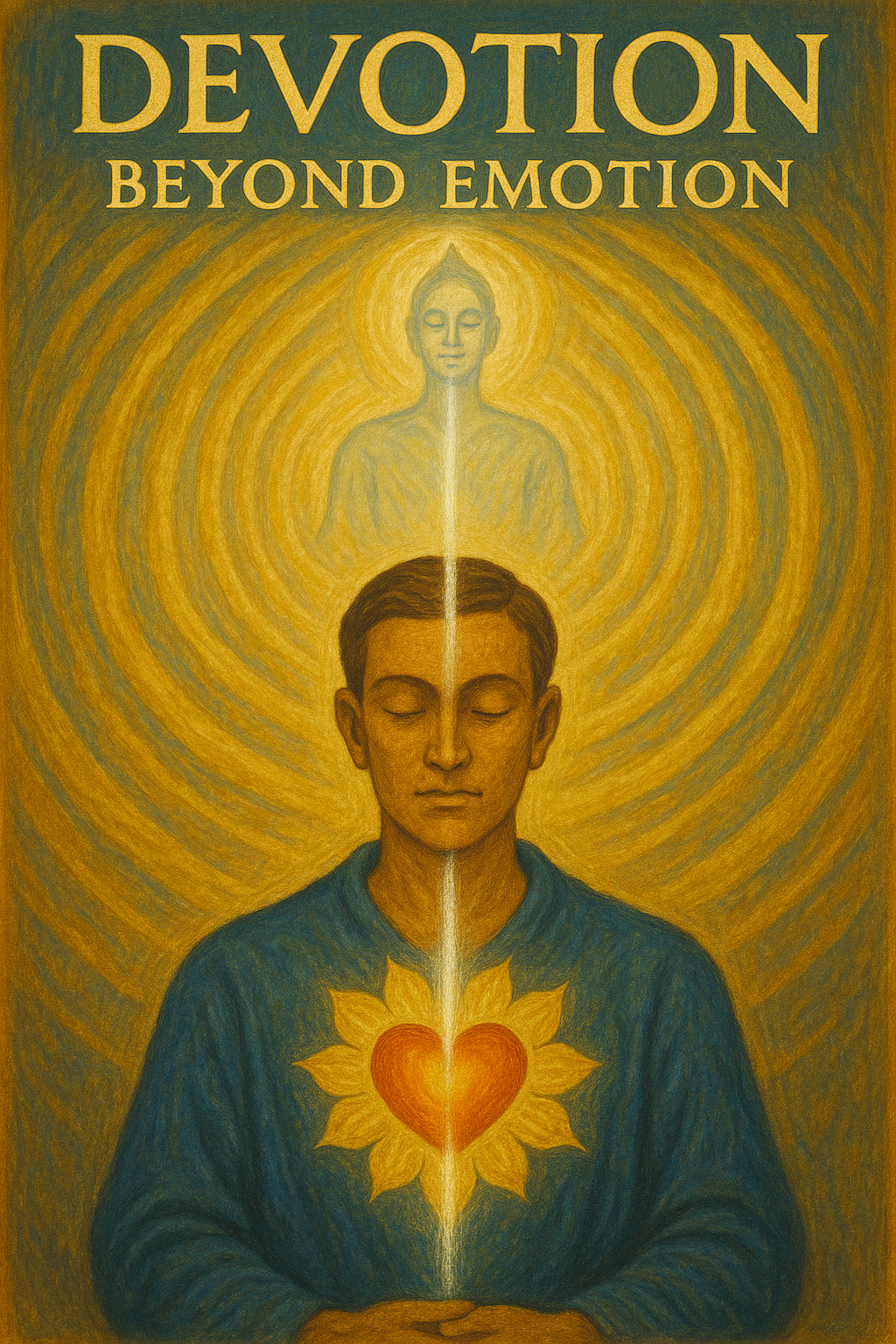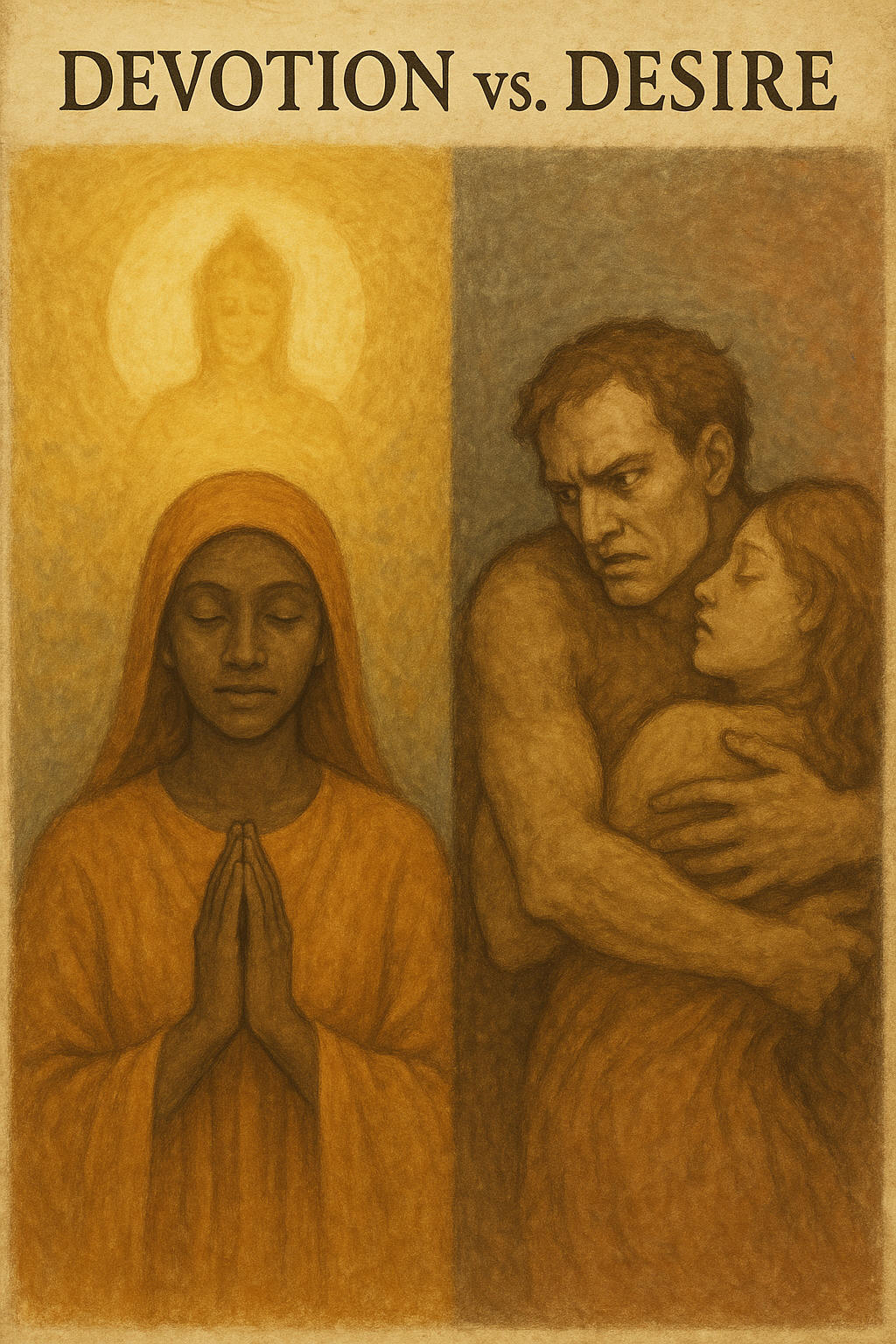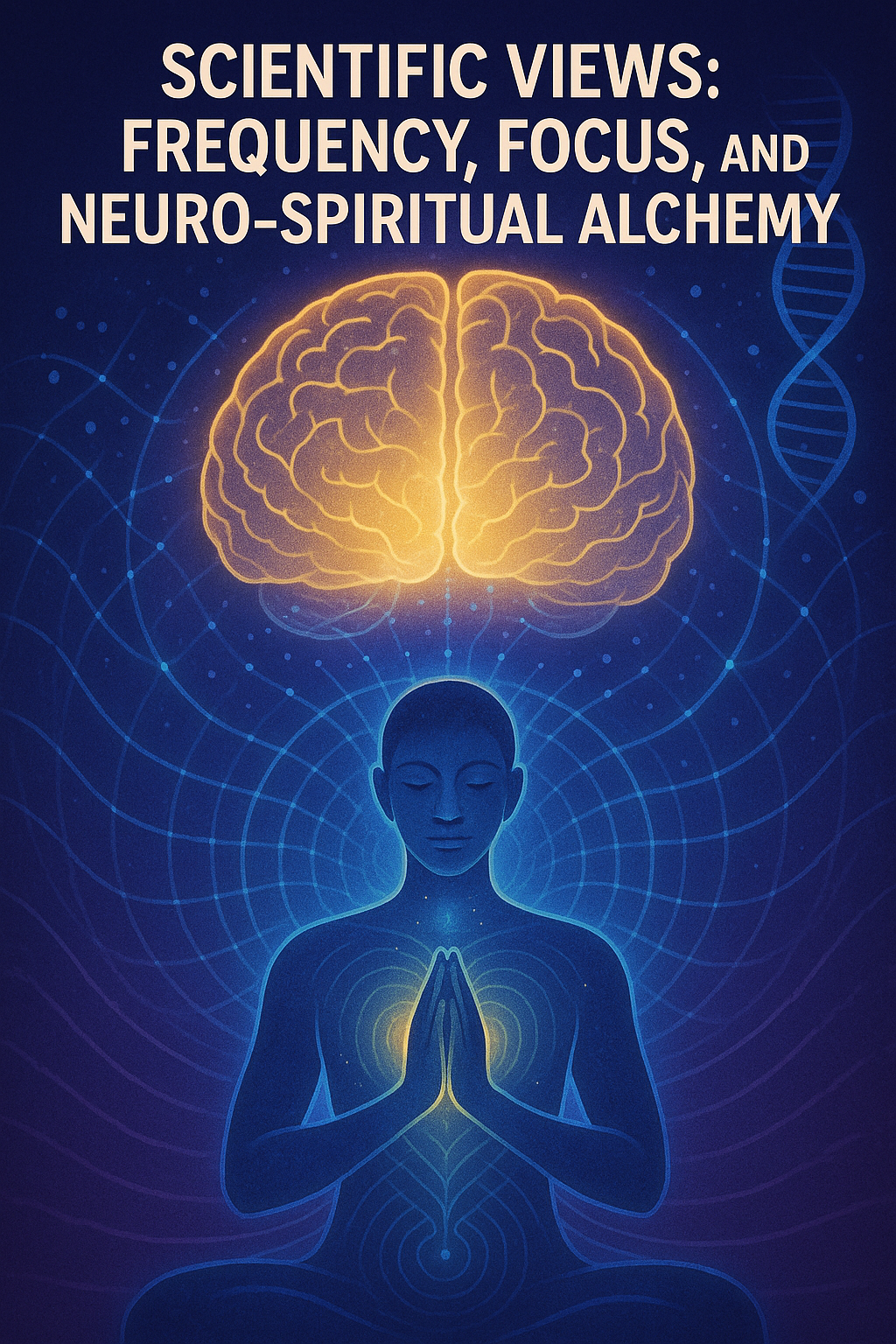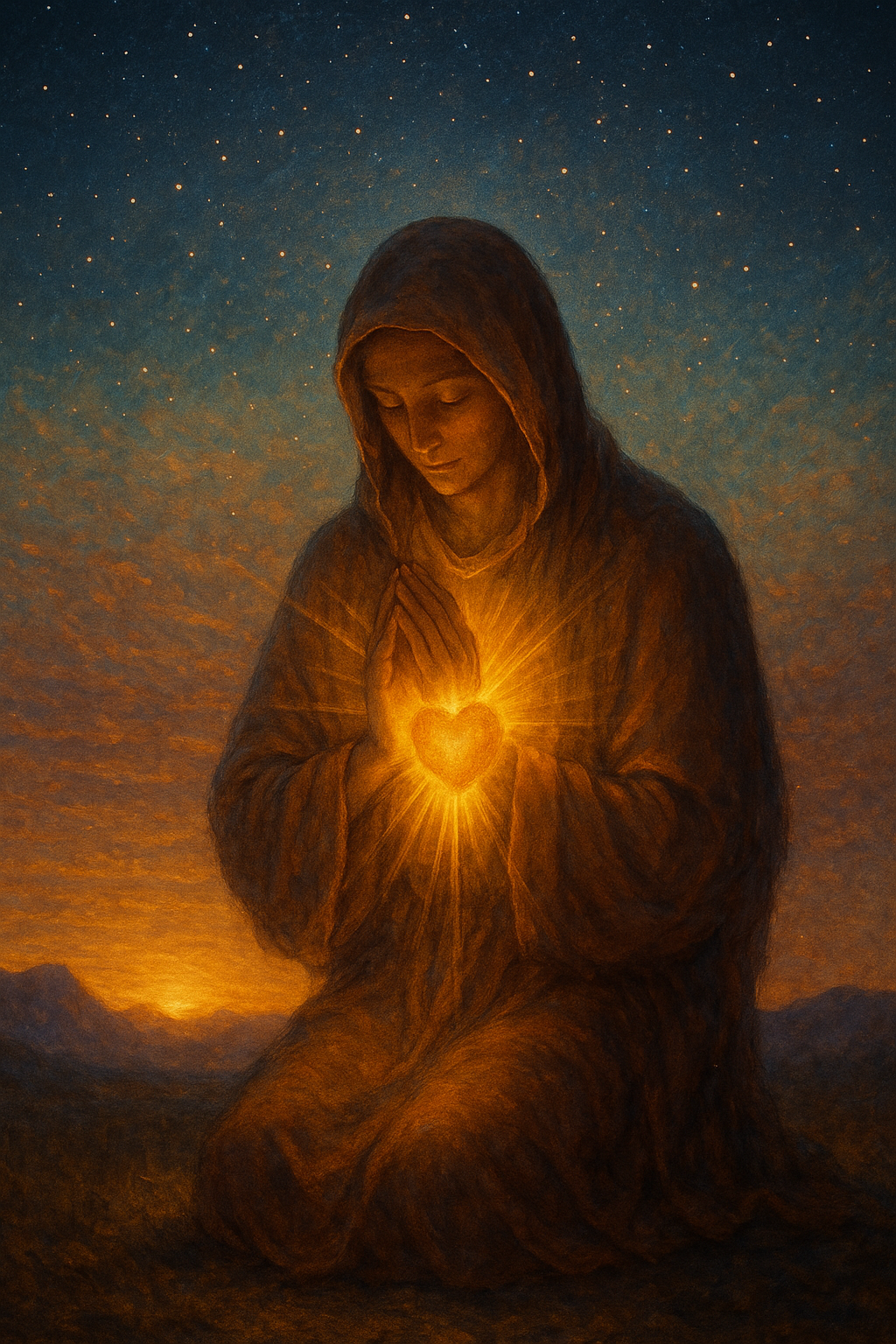True devotion is not submission, but a luminous alignment between the soul and its divine origin. In every act of sincere offering—be it prayer, love, or service—we enter the sacred alchemy that transforms ego into essence, and longing into liberation.
Table of Contents
- Introduction: What is Devotion?
- Devotion in Theosophy: Beyond Emotion
- Devotion Across Religions: A Universal Flame
- Philosophical Perspectives: Devotion vs. Desire
- Devotion and the Psychology of the Soul
- Scientific Views: Frequency, Focus, and Neuro-Spiritual Alchemy
- Practicing Devotion: The Art of Surrender and Sacred Action
- Conclusion: From Personal Longing to Divine Union
Introduction: What is Devotion?
Devotion is the quiet fire within the heart that yearns for something greater than itself. It is the bridge between our temporal experience and the eternal, a sacred thread that binds human consciousness to the divine. Unlike mere belief or obedience, devotion emerges from a deep inner resonance—a love that cannot be coerced but only awakened.
In many traditions, devotion is the soul’s response to the beauty, majesty, and mystery of the Divine. Whether we call it Bhakti, Agape, or pure aspiration, devotion transcends dogma. It is not what we worship, but how we worship that sanctifies our journey.
Devotion in Theosophy: Beyond Emotion

Within the Theosophical framework, devotion is not blind adoration—it is a magnetic force that aligns the lower personality with the higher self. Helena Blavatsky emphasized that true devotion must arise from knowledge and inner discernment. In “The Key to Theosophy”, she warns against emotional fanaticism, pointing instead to the purified heart as the vessel of wisdom.
C.W. Leadbeater observed that devotional energy, when directed consciously, becomes a powerful tool of transformation. He described it as a “ray of magnetic light” flowing from the heart chakra, lifting the soul towards the Monad. In this light, devotion is not weakness, but spiritual will infused with love.
Devotion Across Religions: A Universal Flame
Every major religion recognizes the power of devotion. In Hinduism, Bhakti Yoga is one of the principal paths to moksha, emphasizing love and surrender to God. The Bhagavad Gita portrays Arjuna’s devotion to Krishna as both surrender and awakening.
Christian mystics like Saint Teresa of Ávila described devotion as the soul’s intimate union with God, an inner marriage of fire and stillness. In Islam, the concept of ubudiyyah reflects a profound sense of servanthood and love for Allah. Even in Buddhism, where non-theism prevails, devotion to the Buddha or Bodhisattvas is seen as a means of cultivating compassion and focus.
Despite their differences, these traditions echo a single truth: that devotion is a vehicle of transcendence and a catalyst for inner metamorphosis.
Philosophical Perspectives: Devotion vs. Desire

From a philosophical standpoint, devotion is often contrasted with desire. While desire binds us to the world of form and separation, devotion liberates. According to Plotinus, the soul is drawn to the One through a kind of sacred eros—an ineffable yearning for union beyond all duality.
In Eastern philosophy, devotion is a form of non-attachment. The Tao Te Ching subtly alludes to devotion as the flow of the Tao through an open heart. In this context, devotion is not about possessing the Divine, but about becoming receptive to it—like water to rain, or silence to music.
Devotion and the Psychology of the Soul
In transpersonal psychology, devotion is seen as a soul-centric drive—a longing for wholeness. Carl Jung hinted at this when he spoke of the individuation process, where the ego must bow to the Self. Devotion is this bowing, this sacred submission not to an external deity, but to the archetype of the Divine within.
Modern therapists who explore spiritual dimensions of healing often see devotion as a stabilizing and empowering force. It offers a focus for the mind, a balm for the heart, and a purpose that transcends trauma. It redirects our psychic energy from fragmentation to unification.
Scientific Views: Frequency, Focus, and Neuro-Spiritual Alchemy

Though science rarely uses the word “devotion,” its effects can be observed in brain imaging studies. Devotional practices such as prayer, chanting, and meditation activate regions of the brain associated with compassion, focus, and emotional regulation. Dr. Andrew Newberg, in his research on neurotheology, shows how focused spiritual attention creates measurable shifts in brain chemistry and perception.
From a frequency perspective, devotion resonates at higher vibrational states—those linked to love, unity, and gratitude. It harmonizes the body’s electromagnetic field and may even influence DNA expression through the placebo/nocebo effect, epigenetics, and heart-brain coherence. In essence, devotion tunes us to the Divine wavelength.
Practicing Devotion: The Art of Surrender and Sacred Action
To be devotional is not to escape the world, but to infuse it with sacred presence. Every act—washing dishes, caring for a child, tending the earth—can be a prayer if done with awareness and love. Devotion transforms routine into ritual, obligation into offering.
Practical forms of devotion include:
- Japa (Mantra Repetition): Silently invoking sacred names to align thought with Spirit.
- Seva (Selfless Service): Offering labor or help without expectation of reward.
- Sacred Reading: Contemplating spiritual texts with the heart, not just the intellect.
- Visualization: Imagining light or divine beings to magnetize inner energies.
Ultimately, devotion is not a single practice, but a way of being. It is the fire that burns away separation and the nectar that reunites soul with source.
Conclusion: From Personal Longing to Divine Union
Devotion is the sacred engine of spiritual evolution. It refines our emotions, purifies our thoughts, and draws us ever closer to the Source. In a world addicted to distraction and domination, devotion teaches humility, awe, and wonder. It is the heart’s most noble surrender, and the soul’s most potent power.
When devotion ceases to be about the self and becomes a song sung for the All, then we have crossed the threshold from worshipper to mystic, from seeker to Light.
